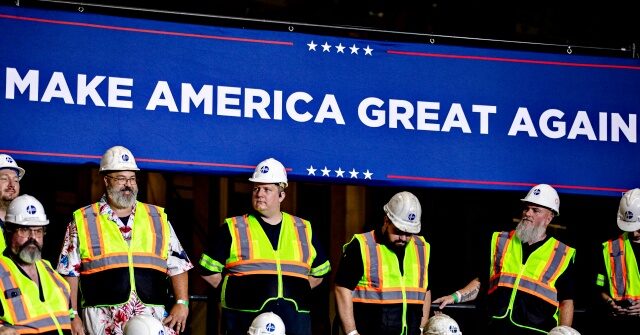President-elect Donald Trump’s intention to implement mass deportations of illegal immigrants is projected to significantly impact the U.S. labor market, particularly by increasing wages for American workers. A report by CalMatters, a nonprofit news organization based in California, reveals that the elimination of cheaper foreign labor could compel employers to raise wages for their workforce. The research indicates that this shift could bring about considerable economic repercussions in California, inflicting billions of dollars in damages across various sectors, such as agriculture, construction, and childcare, according to insights from industry advocates and academics.
CalMatters highlights the disparity in wages between U.S.-born and foreign-born workers. For instance, data from the Bureau of Labor Statistics shows that the median weekly earnings for full-time American workers in the construction industry were $1,031 as of 2020 compared to $786 for their foreign counterparts. Additionally, California’s wage statistics from 2021 reveal that U.S.-born workers earned a median hourly wage of $30, while immigrant workers earned $24, and undocumented workers earned only $16. This wage gap underscores the reliance of many employers on hiring cheaper foreign workers, particularly illegal immigrants, contributing to opposition against Trump’s mass deportation plans.
Even sectors like the California Chamber of Commerce have voiced concern regarding these proposed deportations. They argue that the current economic contributions of undocumented workers are substantial and that replacing these workers would be costly and detrimental to the economy. Instead of mass deportations, the Chamber supports a pathway to citizenship or legal status for the estimated 11 to 22 million illegal immigrants in the U.S., emphasizing that these workers play an essential role in bolstering California’s economy due to the state’s proximity to the border.
Construction industry representatives have already raised alarms, indicating that a crackdown on illegal labor could disrupt their operations significantly. Trump and his vice president-elect, JD Vance, advocate for a labor market where employers are compelled to compete for workers rather than the other way around. This approach is based on a belief that strict enforcement of immigration laws is essential to shield American job seekers from having to compete with lower-paid foreign workers, particularly those who are undocumented.
Ultimately, the tightening of labor markets proposed by Trump aligns with a broader narrative that seeks to ensure that American workers receive fair compensation and job security. By focusing on enforcing immigration laws, the administration aims to create a more favorable landscape for U.S. workers, allowing them to have better access to jobs without the fear of competing against individuals who are paid less and potentially lack the same legal protections.
As both supporters and critics of Trump’s immigration policies continue to express their viewpoints, the economic implications of his proposed deportations remain at the forefront of the discussion. The ongoing debate underscores the complexities of immigration reform and labor dynamics in the United States, raising questions about how to balance the needs of the economy with the realities of the labor market and the contributions of immigrant workers.

